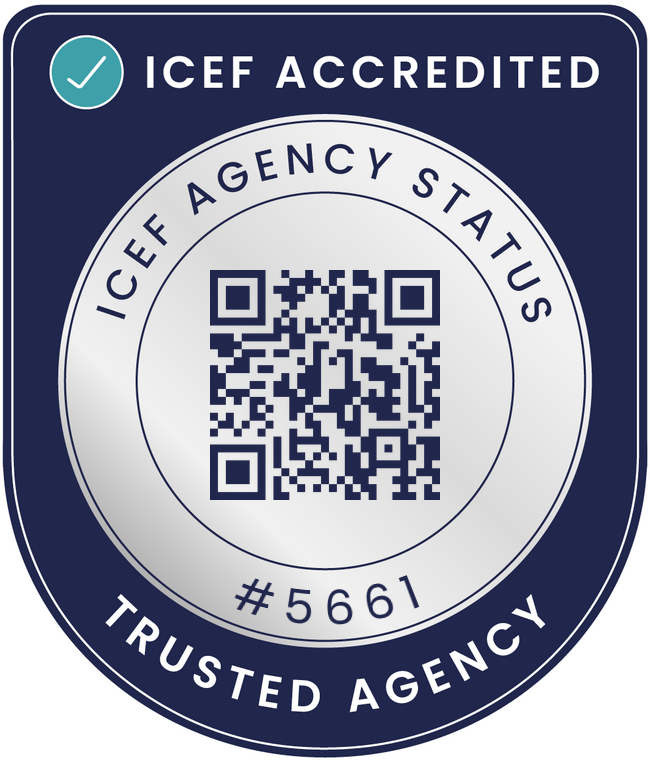About
Our Story

By establishing bilateral links with prestigious institutions and colleges in many wealthy places such as the UK, USA, Australia, Denmark, Croatia, Finland, the Netherlands, and Hungary, Future Vision plans to grow its worldwide network. Since Future Vision’s inception, we have been able to successfully recruit students for our present overseas partners. Therefore, we are firm believers in making rapid progress in building the businesses of other institutions, including those that have not yet associated with us and those who have not fully yet.
We Support Locally, We Recruit Globally
BETTER TOMORROW
Our Mission
We provide the right solution for Bangladeshi Students for study abroad by placing the emphasis on providing high level of customer satisfaction.
Our Vision
Be one of the greatest education providers in home county.
Our Core Values
Student Focus
We prioritize students’ needs by offering personalized guidance and support to help them achieve their academic and career goals.
Respect
Our team fosters mutual respect by valuing diverse perspectives and building strong, positive relationships with students and partners.
Competence
With a team of experienced professionals, we ensure top-notch service quality and reliable assistance throughout the admission process.
Entrepreneurship
We embrace innovation and creativity, empowering students to explore new opportunities and achieve success in their chosen fields.
Communication
Clear and transparent communication is at the heart of our operations, ensuring students are informed and confident in every step of their journey.
Collaboration
We work hand in hand with students, educational institutions, and partners to create a seamless experience for all.
Integrity
Honesty and ethical practices are the foundation of our services, ensuring trust and reliability in everything we do.
FAQ's
About Future Vision

Lorem ipsum dolor sit amet, consectetur adipiscing elit. Ut elit tellus, luctus nec ullamcorper mattis, pulvinar dapibus leo.
Frequently Asked Questions
FAQ's
Question #1
Why study abroad?
The rising popularity of study abroad programs can be attributed to numerous factors. Gaining a top-notch education, immersing oneself in a new culture (and frequently a second language), developing a global perspective, and increasing future work opportunities are probably the main draws for the majority of foreign students. Studying abroad is both an exciting challenge and a scary possibility for some people. However, for others, it opens doors to better job prospects and a deeper awareness of the world around them. Choosing a study abroad location based on your interests and the country’s academic reputation might help you strike a satisfactory work/life balance since your experience abroad will be very different depending on where you go.
Question #2
Where in the world should I study?
Selecting a university is not always an easy task. Practical considerations, such as the cost of studying (tuition plus living expenses), the graduate job market, and your personal safety and well-being, should be considered alongside your personal interests when choosing a nation to study in.
Question #3
When can I start applying for study abroad programs?
The online application window typically opens in the beginning of the academic year (January/February) and closes in the middle of the year (June/July) for programs beginning in the fall (September/October). However, this does not always hold true across all schools.
Question #4
What are the entry requirements for study abroad programs?
In general, though, when you apply to an undergraduate program, you’ll need to provide evidence that your secondary school was completed to a level commensurate with the GPA, A-level grades, or equivalents needed for that program. Get in touch with the school’s admissions office if you’re not sure if the university accepts your foreign credential. If you are not a native English speaker but would like to study in a country where English is the official language, you will probably be required to show evidence of your English ability by taking a test like the TOEFL or the IELTS. Those pursuing studies in other languages might also be asked to take comparable exams. See question eight for further details regarding language exams.
Question #5
What documentation should I submit with my application?
As part of your application, you might be asked to submit some supporting material. Once more, requirements differ by nation and university; however, the following are frequently requested of overseas students:
· Photos from passport for identification
· Statement of Purpose (SOP)
· Resume/CV
· Academic Reference and Recommendation Letters
· Academic Certificate and Transcript
· Evidence of fluency in English, such as IELTS/TOEFL/PTE/DUOLINGO/MOI Certificate
· Job Reference Letter
Question #6
Will I need to attend an admissions interview?
Even though it’s not common, particularly for highly competitive programs, colleges may nonetheless demand prospective overseas students to show up in person for admissions interviews. The admissions office of a university may ask you to attend an international interview, which might take place anywhere in the globe. The use of video interviews is also on the rise. The format is the same as any other interview: a set time and date, but the medium is virtual, with the help of a program like Skype.
Question #7
After gaining a letter of acceptance, what do I do next?
Enjoy your entry! Next, prepare for your studies, pack your life into a huge suitcase, organize travel paperwork, apply for a student visa, investigate accommodations, and seek financing. No worries—it’ll be worth it!
After university acceptance, you should start thinking about travel documentation. Have a passport, travel insurance, and student visa if needed. Make sure you have enough time to have your passport/visa authorized to travel lawfully.
For more information on travel documentation, check the government website of your chosen country for travelers, visitors, and international students (e.g., Gov.uk for UK travel information). Official travel websites should provide all the facts you need.
You can also consult your university. Admissions offices often assist you in preparing for your travels and applying for student visas in select countries. Check with your university—don’t assume someone else will handle it.
Question #8
How much does it cost to study abroad?
Think about the average tuition costs for foreign students in your target country and add them to the cost of living to get an idea of how much it will cost to study abroad.
Beginning at £10,000 per year, tuition and living expenses for overseas students studying in the UK amount to £1,483 (inside London) or £1,136 (outside London) per month.
The average annual tuition rate at public institutions in the US is $25,620, while private universities charge an average of $34,740. On top of that, you need to set aside at least $10,800 to pay your living expenses. Keeping these annual numbers in mind, remember that the average duration of an undergraduate degree in the United States is four years.
Question #9
Can I work during my studies abroad?
A student’s ability to work while on campus is a major factor in this decision. There are limits on how much paid labor you may do in certain nations while you’re a student. While most schools allow up to 20 hours of paid labor per week during the school year, holidays are an exception.
We are here to help you
Request a call back

YOUR FUTURE, OUR EXPERTISE



